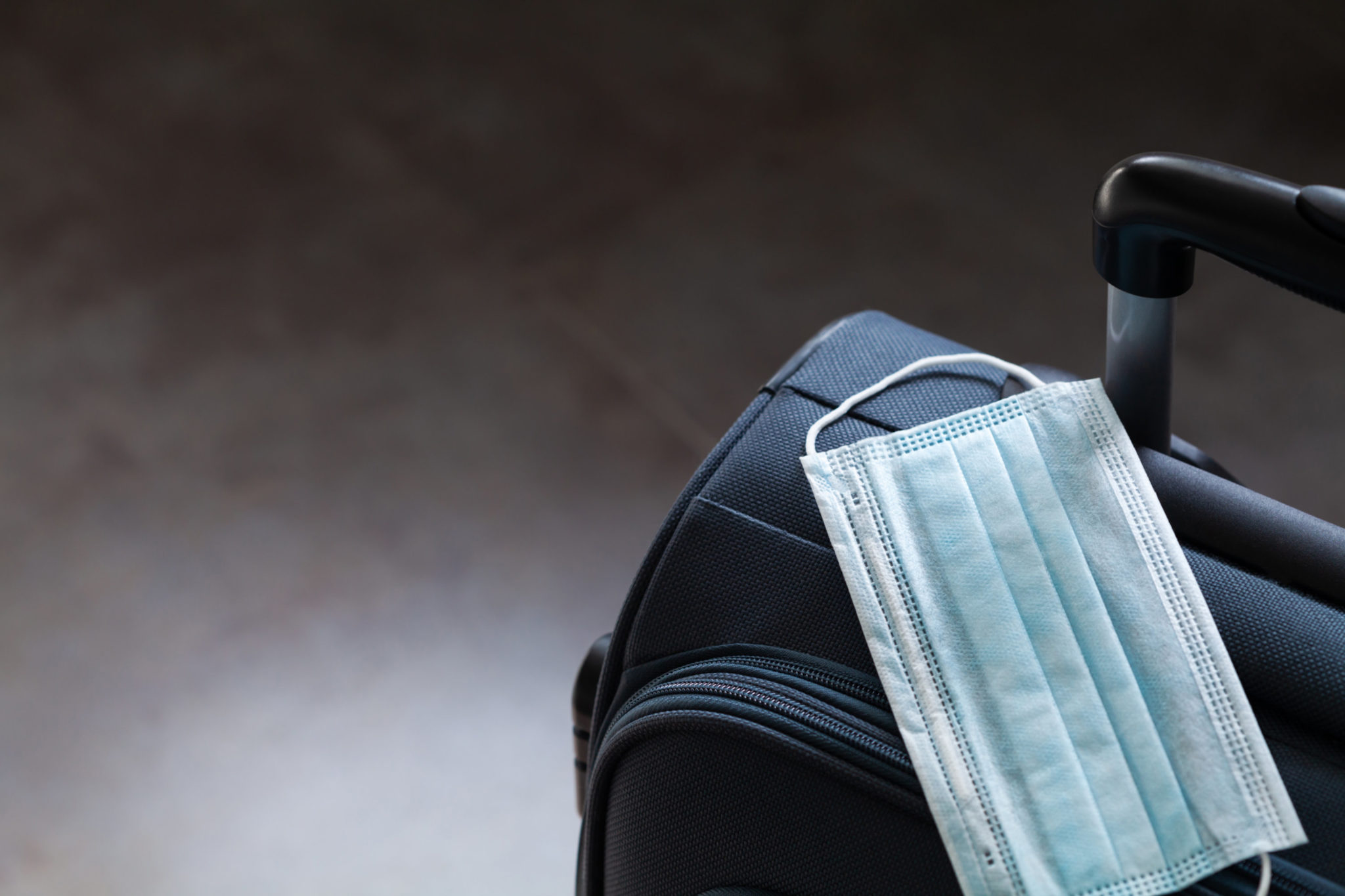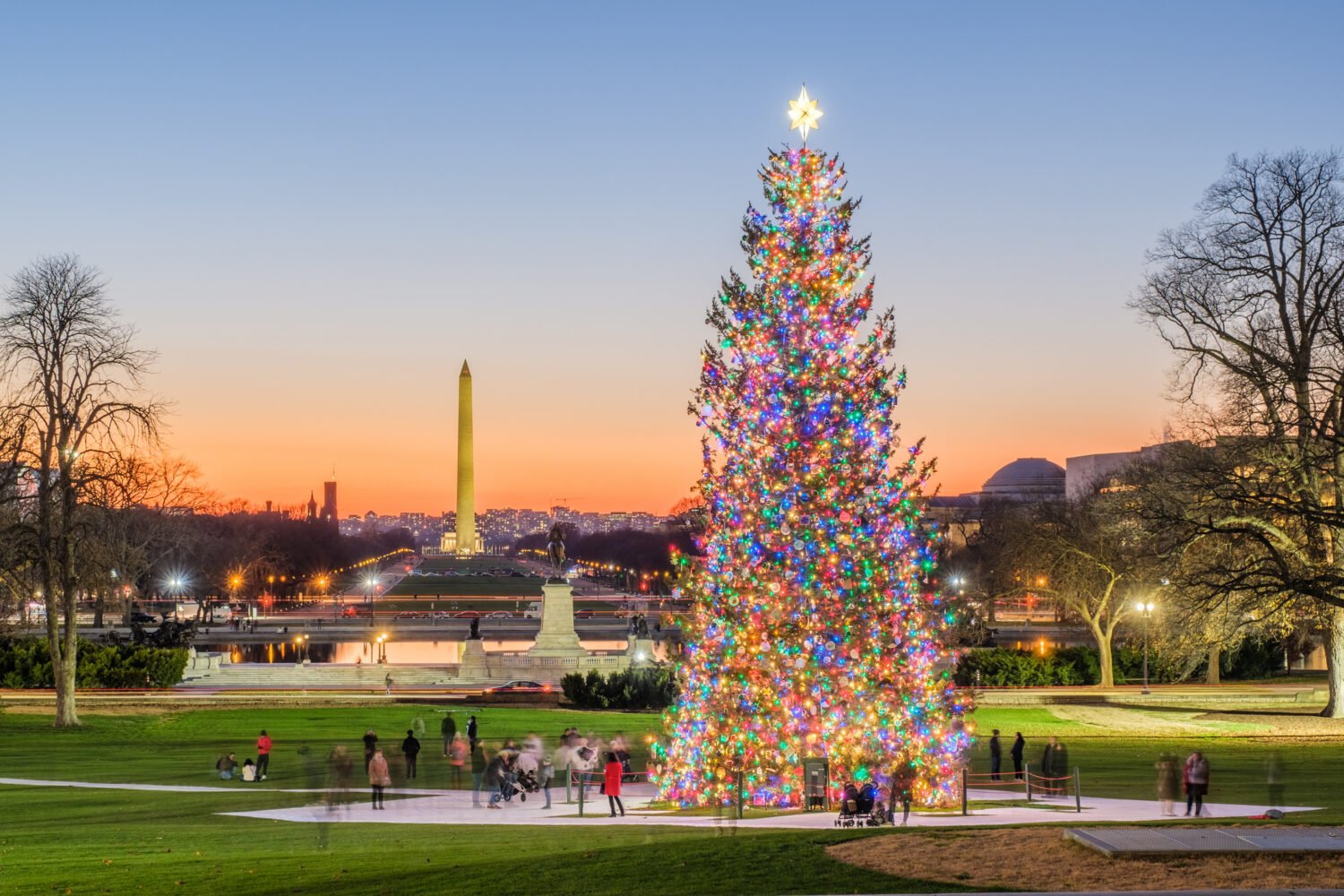About Coronavirus 2020
Washingtonian is keeping you up to date on the coronavirus around DC.
Somehow, time has continued marching on, and the holidays are upon us. But so are the rising Covid-19 numbers—last week, the country recorded a record 100,000 new coronavirus cases in one day.
Understandably, folks may be weighing the odds of traveling to spend the holidays with loved ones. How safe is it to travel right now, let alone gather and celebrate?
We’ll let a professional put it simply: “Travel increases your chance of getting and spreading Covid-19, period,” says Inova infectious disease specialist David Yoho. “The lowest risk really is just staying home.”
John Symington, also an Inova infectious disease specialist, agrees: “People should think seriously about traveling to visit their loved ones.”
The Centers for Disease Control backs this up in its Thanksgiving guidelines, where it states that indoor holiday gatherings of folks outside an immediate household (ie. people traveling from elsewhere) are high-risk.
But the professionals also know it’s difficult to ask people to isolate over the holidays and not see family. “Things are getting worse, the risk of exposure is going up, so you do the best you can do under these circumstances,” says George Washington infectious disease specialist Gary Simon. “There’s no good answer to this situation.”
While you’re automatically increasing your risk of getting Covid-19 by traveling and gathering with others, if you are going to do it over the holidays (as many likely will), what are the precautions to take? We asked experts to share their tips for mitigating the risks.
When should you quarantine?
The safest approach after traveling is to self-isolate for about two weeks after, in case you were exposed en-route, say the doctors. But for many folks, that isn’t possible during the holidays, as they only have a few days at their destination. “What are they going to do, go home on Tuesday and quarantine until Thursday?” says Simon. “I mean, that just doesn’t make any sense.”
If that’s the case for you, the best bet is to self-isolate for about 10 days before traveling, if possible, says Simon. That way, you’ll at least know you weren’t in contact with anyone potentially infected before you’ve left.
Also important: taking into consideration the Covid rates in the area you’re leaving and the area to which you’re traveling. While you should try to self-isolate before traveling no matter what, you’ll definitely want to if you’re living in an area with higher rates, such as North Dakota. The same goes for traveling to higher-rate areas; you’ll want to quarantine when you get home, if you can.
“Know where you’re going, what the community spread is, know who you are visiting. If those individuals are at higher risk of severe Covid-19, you may want to consider quarantining in that situation for 14 days,” says Yoho.
And factor behavior into the equation, too. Even if a loved one lives in a low-risk area, if they haven’t been practicing social distancing or hand washing, their risk of infection is higher. “The issue of quarantining someone really is based on how good they have been about staying at home and wearing a mask and not touching their face,” says Symington. “If they haven’t been doing a good job with that, just don’t come this year.”
How should you travel?
If you have your own car, driving it to your destination is the safest way to travel, say the doctors. Next is renting a car, then flying, then getting on a bus or a train. “Train or bus are both terrible,” says Simon. “They don’t have good circulation; it’s crowded.”
If you’re traveling via plane, train, or bus, you should wear your mask the entire time, practice social distancing, and wash your hands, say the doctors. And try to find an airline that leaves the middle seat open, if you can. The CDC also has good tips for pandemic-era travel.
If you’re traveling to the same destination for Thanksgiving and a later holiday such as Hanukkah or Christmas, it may be easiest to just stay if you have that privilege. “It’s safer to celebrate the holidays within your own family where you live,” says Yoho. “If you are in a situation where you get home, you have the luxury of time, you can work from home, you can work from anywhere, and you can reside there for a period of time and work remotely and stay there over the holidays, [that’s best].”
When should you get tested?
This is where the medical opinions differ a bit. Generally speaking, Symington recommends testing before travel on a case-by-case basis. “I think it depends on, as far as testing goes, a) where you’re coming from and b) how careful you’ve been,” he says. “How much have you been leaving your home, either for your job or otherwise, and going to someplace indoors and putting yourself at risk?”
Yoho, however, is “100 percent behind testing” before and after travel, he says. “I think if people want to do that and it’s available to them, I am all for it.”
All the doctors agree, however, that testing can give a false sense of security, and in cases of quick trips to see family, may be useless. The test only proves that you were Covid-free the day you got the test: You could still pick up the virus prior to leaving or while traveling.
You generally want to wait about three days after potential exposure to get tested, say the doctors. So if you’re able to visit for an extended period of time and keep your distance from family until you receive test results, that would be helpful. And if you’re able to take a long enough trip to get tested prior to leaving, waiting a few days post-travel, and then getting tested again, even better. But many folks may not have that option.
Another thing to consider: the reliability of test results. “There are false negatives and false positives with every test,” says Simon. He recommends getting a PCR test, which takes more time for results, but is more reliable than rapid antigen tests, he says.
And, of course, check the guidelines of your destination before you travel—some states require negative Covid-19 tests to enter. Most areas will post that information via the local health department.
How should you behave when you arrive at your destination?
In an ideal world, people would be interacting only outdoors in a socially distant manner, as Covid-19 is more likely to spread when people are in close contact and indoors. But, again, the doctors know that’s a really hard thing to do when it comes to loved ones and the holidays.
“If you’re going for Thanksgiving, you’re going to have contact,” says Simon. “If my kids were coming in for Thanksgiving, am I going to tell them they can only sit on the other side of the room? We try to reduce the close contact and the hugs, but I think it’s a little hard.”
Try to minimize contact when you can, they say, and wear masks and wash hands whenever possible. “Every single thing you do that reduces likelihood of spread, reduces risk,” says Simon. And as for gathering, keeping numbers low and eating outside is the safest method.
Also consider the age and health of the folks you may see over the holidays. Are they at-risk? Maybe rethink having them at dinner. ”If you’re going to see grandma and grandpa and they’re in their 80s, that’s a big risk for them. Somebody who has asthma is at greater risk,” says Simon. “You’ve got to take into account who you’re going to see.”
The TLDR
Traveling and gathering over the holidays increases your risk of spreading Covid-19, no matter what. But you can reduce your risk by washing your hands frequently, wearing a mask, social distancing, avoiding crowded places and public transportation, and being outdoors.
“Every aspect of this is—yes, it’s disrupting and it’s unfortunate and it’s sad,” says Simon, “but I don’t see how we get around this.’





















